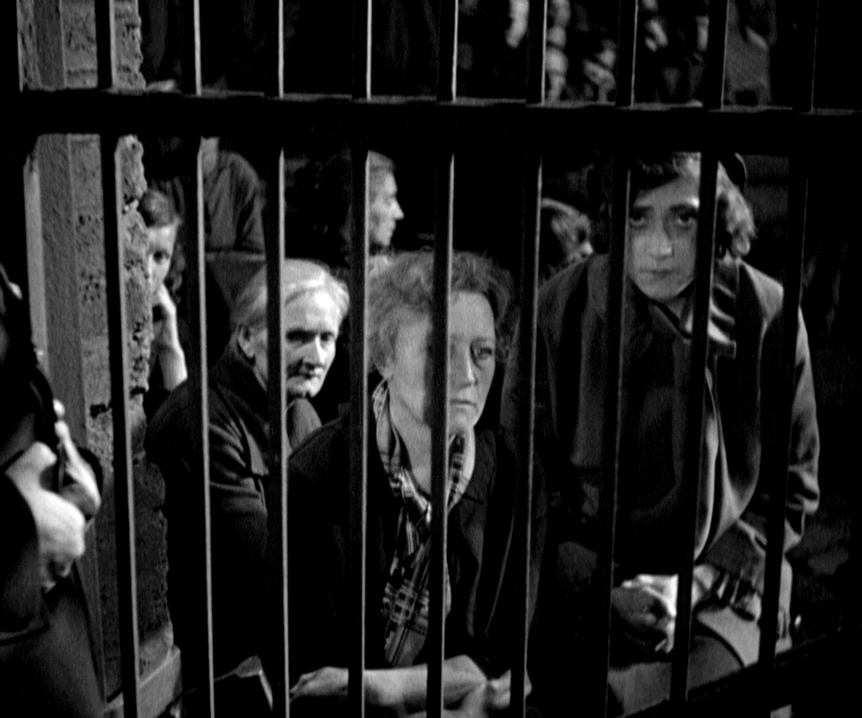|
An emotional plea for pacifism that effectively skewers the intrinsic absurdities of war and conflict, Georg Wilhelm Pabst's Comradeship is one-for-the-ages, a film which skillfully uses a tragic mining calamity as a vehicle to pronounce the filmmaker's disdain for nationalism and distaste for war and militarized conflict. Centered around an old Germany mine, which at the end of WWI was split into two to accommodate the new border location between France and Germany, Pabst's Comradeship chronicles the chaos that ensues when a fire breaks out on the French side, leaving a group of French miners in peril. Stranded deep below and running out of time, the french miners quickly find themselves aided by their equals on the German side, who form a rescue group to help their fellow miners. An assertive piece of filmmaking that doesn't shy away from its overarching message, Comradeship has a layered anti-statism, anti-authoritarianism message, a film which recognizes that true power and good stems largely from the people themselves. Nearly all the various authority figures throughout this film are obstacles that stand in the way of saving lives, from the border patrol agents, to the French authorities whom are effectively worthless at the scene of the mining fire, Pabst's Comradeship showcases various authority figures as obstructions, state-instruments, whom effectively cannot help due to their nationalistic or authoritarian allegiances to the nation-state. Individuals who wield the power and authority which comes from their respective nation-states only obstruct and frustrate the mining community, yet in the end it's the community and the miners which inhabit it that save themselves and come together in the ashes of this catastrophe. From the German miners whom rush to help their french counterparts eschewing the border to save time, to the french housewives themselves, whom grow frustrated by the ineptitude of the state response, the various members of the community work together to solve this problem. Whether it's intentional or not, Pabst's pacifist, humanistic message rings of the merits of Anarchism - one in which the coercive effects of hierarchy, power, and authority vanquish. The craft and artistry implored by Pabst throughout Comradeship is masterful, as the film visually draws many parallels between the mining accident and war itself. The chaos and aftermath of the mining collapse, the general haze and confusion which takes place harkens to any wartime battlefield, with Pabst even bluntly imploring a visual juxtaposition at one point between war-time and the mining collapse, exhibiting through visuals the fractured psyche of one trapped miner and ex-WWI veteran, a man whose confusion has reached an apex under the weight of such paralleled trauma between his time on the battlefield and the current mining catastrophe. Georg Wilhelm Pabst's Comradeship uses this mining accident to reveal the trivial nature of borders themselves, a film that skewers the false sense of group identity and virtue people achieve through belonging to a collective, in this case nation-state, while recognizing these any such classifications only subverts our larger empathetic nature as humans.
0 Comments
Leave a Reply. |
AuthorLove of all things cinema brought me here. Archives
June 2023
|

 RSS Feed
RSS Feed
